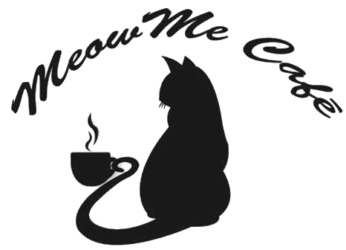Chemistry and biology, the study of life and it is complexities, often carries about it numerous assumptions and myths. These misconceptions can impede a thorough understanding of biological key points, leading to misguided interpretations and applications. This article delves directly into some check it prevalent misconceptions with biology, explores their history, and emphasizes the importance of dispelling these notions for a much more accurate understanding of the inbreed world.
The Pervasiveness associated with Misconceptions in Biology
Fallacies in biology can come from various sources, such as oversimplified educational materials, rudimentary comprehension of biological ideas, or misinterpretations based on daily experiences. These misconceptions can easily span across various domains of biology, including genetic makeup, evolution, ecology, and physiology. It’s essential to identify and also address these misconceptions to foster a more accurate knowledge of the biological sciences.
Frequent Misconceptions and Their Corrections
one Misconception: Humans only utilize 10% of their brains.
Static correction: This is a widely circulated myth. In reality, humans use all types of parts of their brain, and different areas have specific features. Brain imaging technologies clearly show consistent activity throughout many regions.
2 . Misconception: Progression occurs with the purpose of enhancing a species.
Correction: Development is not purposeful; it is a result of natural selection based on invaluable traits within a specific natural environment. Evolution does not have a goal to have a species “better. “
three or more. Misconception: Antibiotics are effective in opposition to viral infections.
Correction: Medication only work against bacterial infections. Viral infections, such as the widespread cold or flu, should not be treated with antibiotics.
4. Misbelief: All bacteria are damaging and should be eliminated.
Repellant: While some bacteria can cause ailments, many bacteria are worthwhile and essential for processes just like digestion and nutrient forms.
The Significance of Rectifying Misunderstandings
Addressing and rectifying misguided beliefs in biology is crucial for a variety of reasons. Misconceptions can lead to some flawed understanding of fundamental inbreed principles. This can hinder additional learning and may result in the misapplication of knowledge, especially in fields for example medicine or environmental knowledge.
Moreover, misconceptions can create a good sense of confusion and frustration among students, potentially disappointing ? unsatisfactory ? wanting them from pursuing biology-related careers. By providing accurate facts and debunking common misunderstandings, we can instill a sense of self-confidence and curiosity in budding biologists.
Strategies to Challenge Common myths
1 . Active Learning:
Include interactive learning methods for example group discussions, hands-on tests, and case studies. Encourage young people to question and difficult task misconceptions actively.
2 . Inquiry-Based Learning:
Embrace an inquiry-based approach, where students research biological phenomena, form ideas, and draw conclusions according to evidence. This nurtures crucial thinking and helps correct fallacies.
3. Utilize Technology:
Seek out educational apps, simulations, along with online platforms that provide interactive biology lessons. These tools can present complex concepts in an attractive and accurate manner, making an effort to dispel misconceptions.
4. Break a Growth Mindset:
Encourage a growth mindset, emphasizing that cleverness and understanding can be created through effort and finding out. This cultivates resilience and also openness to correcting misguided beliefs.
Conclusion
Misconceptions in chemistry and biology can act as stumbling pads in the path to a comprehensive know-how about the biological world. Identifying and correcting these misguided beliefs is essential for students, educators, together with enthusiasts alike. By adopting interactive and inquiry-based learning, fostering a growth mindset, and also utilizing technology, we can task these misconceptions and engender a generation of biologists with a deeper and more appropriate understanding of the intricate net of life. In doing therefore we empower future professionals to contribute meaningfully for the field of biology in addition to address the complex problems our world faces.
